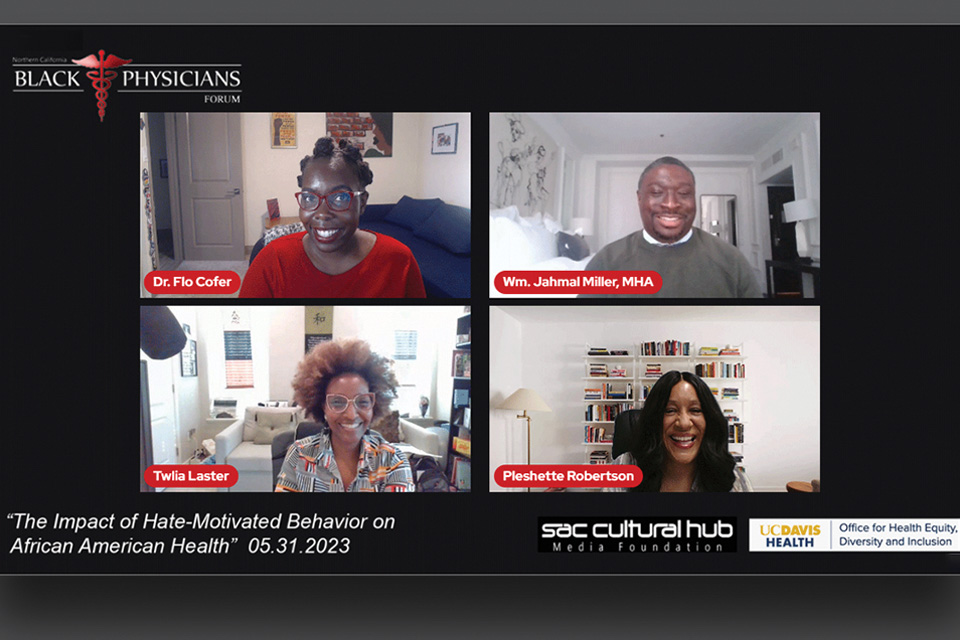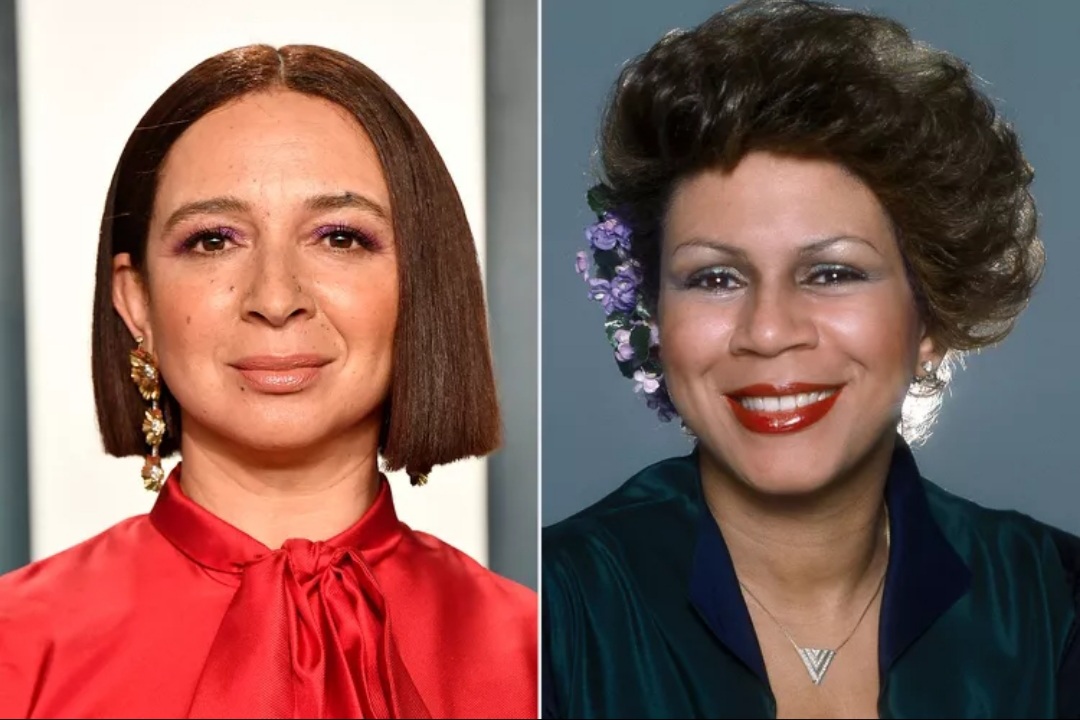
The 2023 Black Physicians Forum Addressed the Impact of Hate-Based Behavior on the Health of African Americans
“We have not had a full reckoning with how this country was started: on stolen land and with stolen people.”
by freelance writer Michael P Coleman
“It has been terrifying living in this world as a black mother of a black son and a black daughter.”
Any and all of us with children know of — and most likely share — the woman’s fear. Her heartbreaking testimony was given during a video montage that opened this year’s 13th Annual Black Physicians Forum. Her words echo advice that has been given for centuries in this country, conjured to help keep black American children, and especially black boys, alive in the face of racist agitators.
When will this era end, when we don’t have to give our black and brown children extra warnings that their white peers never have to hear?
“Make a promise to us, America, to do better by our children,” another speaker from the event’s opening video, implored.
On May 31, the Sac Cultural Hub Media Company and Foundation made inroads into keeping that promise.
Via Facebook Live, the Black Physicians Forum continued the tradition of assembling thought leaders in health care to discuss issues that are critical to communities of color. This year’s theme was “The Impact of Hate Motivated Behavior on African American Health.” The event was sponsored by UC Davis Health’s Office of Health Equity, Diversity, and Inclusion.
After a warm welcome by Pleshette Robertson, CEO and Founder of the Sac Cultural Hub, the mic was ceded to the event’s moderator, Wm. Jahmal Miller, Chief Administrative Officer of Mercy Medical Group, CommonSpirit Health, and author of the new memoir Equity, Equality, and Justice For All.
Miller was effusive in his praise for the event’s keynote speaker, Dr. Flojaune Cofer.
“I always admire people who have the courage to step into the public square when we talk about public service,” Miller said of Cofer, an epidemiologist who is affectionately known as “Dr. Flo” and has served as the Senior Director of Policy for Public Health Advocates for the past six years.
“She doesn’t just talk about it: she IS about it,” Miller added. “When Dr. Flo is engaged, we’re better off for it.”
If Miller is correct, all of the attendees of the Black Physicians Forum are better off today, as she couldn’t have been more engaged. In hindsight, that was to have been expected: in addition to being a graduate of Spelman College, Cofer earned a doctorate from the University of Michigan. (GO BLUE!) Cofer has also joined the city of Sacramento’s upcoming mayoral race.
“While I’m excited to be here this evening. I’m not excited about the topic we have to talk about,” Cofer said before launching into a thoughtful overview of the social determinants of health — those places where people are born, live, work, play, worship, and age that affect a wide range of health, functioning, and quality-of-life outcomes and risks. According to Cofer, those determinants cover five domains: economic stability, education access and quality, health care access and quality, neighborhood development, and social and community context.
Next, Cofer discussed hate motivated behavior through the lens of trauma, which is an event, series of events, or set of circumstances that are experienced by an individual as physically or emotionally harmful or life threatening. That behavior, Cofer said, often has lasting effects on the individual’s functioning, as well as on their mental, physical, social, emotional, and spiritual well-being.
Cofer then touched on Adverse Childhood Experiences, or ACEs — those events that occur early in life that researchers have learned can have a profound, negative, and often lasting effect on an individual — if mental health treatment isn’t sought.
“There are many ways in which childhood trauma shows up, in behavioral, mental, or physical health outcomes,” Cofer said. “While [knowledge of ACEs is] valuable…they ignore the community, and the shaping of our group consciousness with regard to community trauma.”
“When I saw the video,” Cofer said of the Black Physicians Forum’s opening montage, “I saw health care professionals [describing] these experiences and things we were seeing in the media that shaped the way that [they] were going home and interacting with their families. [Those experiences] shaped their consciousness — the worry and stress that they were holding. Similar to taking a rock and dropping it into a body of water, there are ripple effects that can be wide ranging. As such, Adverse Childhood Experiences should be expanded to Adverse Community experiences.”
“It’s not an “either / or,” Cofer insisted, “it’s a “both / and.”
In touching on racism, Cofer delivered another “drop the mic” missive.
“We have not had a full reckoning with how this country was started: on stolen land and with stolen people,” Cofer said. “When individuals are not being seen as valuable and having their voices and experiences heard and affirmed, when experiences are dismissed, or seen as the norm and something we have to adapt to, [and] when our systems, including our health systems, dismiss issues because they can’t see the impact on us, the negative health consequences are numerous.”
“We have intersectional identities, including income, education level, gender, sexual identity — all of those things contribute to our reaction to…hate,” Cofer continued. “From a racial perspective, the experiences often show up as anger, shame, and fear. Angry [people] are not seen in need of care, but in need of management. Anxiety, post-traumatic stress, and poor overall health [are often the outcomes of this].”
“In the black community, trauma must become a priority. Emotional safety must be considered a priority, similar to other basic needs,” Cofer said. “Trauma is the most common risk factor for mental health. It’s often an overlooked risk factor for behavioral, physical, and mental health outcomes. It’s a matter of life and death. Hopefully, we can then create the political will to move our systems forward to be able to take this very seriously and address it.”
“I’m really speaking to two audiences: individuals and institutions,” Cofer added. “Even in one-on-one situations, our individual actions comprise a collective that defines our institutions and our health care system. When we’re thinking about these individuals and institutions, we need to be really clear about how we’re showing up and what we’re pushing these systems and institutions to do to be able to be in service of liberation and healing, instead of being yet another layer — a gasoline, if you will — on the fire that is hate-motivated behavior. We want to quiet and quell and heal and liberate as opposed to amplify hate, dehumanization, and distress.”
As she wrapped up, Dr. Flo illuminated a pathway to doing just that.
“Just as no one would question the use of tobacco products, because the data and the evidence is just so clear [on hate] being a negative, harmful risk factor to health, we need to take [hate-based behavior] as seriously,” Cofer said. “It is so clear when we think about the social determinants of health that this is absolutely one of them. We cannot be ambiguous in our approach.”
“We need to address health professionals, educators, policy-makers, and community members,” Cofer said. “Hate-harm…needs to meet resistance at every level. We need to call out, at every level, that it is wrong, it is harmful, and there are serious consequences to it.”
“When we don’t do that, It’s not a neutral position,” Cofer said. “It’s taking an on ramp for a risk factor that we know is harmful.”
Watch the video of this year’s 13th Annual Black Physicians Forum at https://www.facebook.com/watch/live/?ref=watch_permalink&v=3463067570635745
Connect with freelance writer, audio / visual producer & host, and content creator Michael P Coleman at MichaelPColeman.com.



